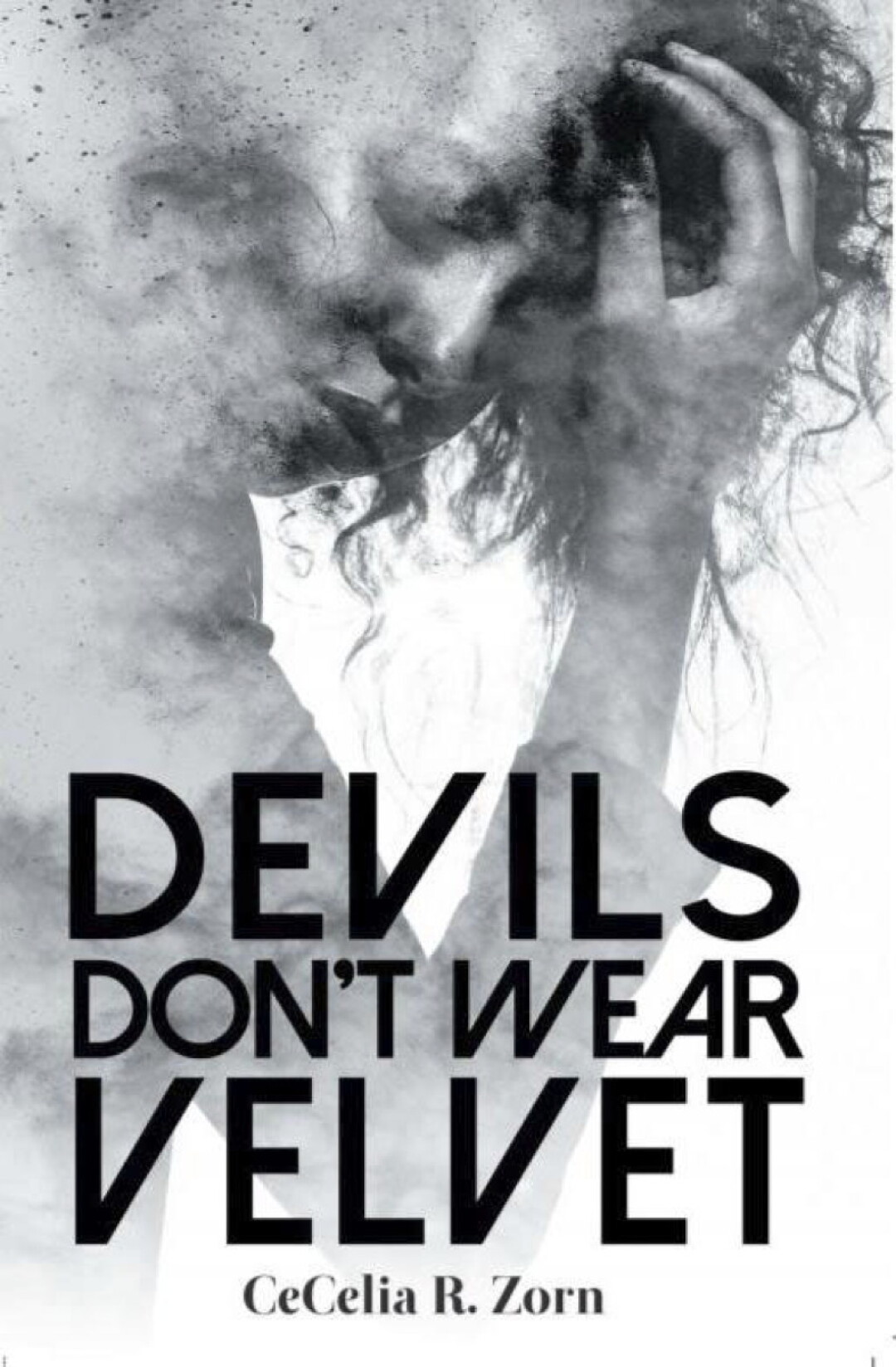Young and Strong
novelist focuses on teen girls’ spirit, strength
Emily Kinzel, photos by Andrea Paulseth |

Considering fashion faux pas, braces, and awkward attempts at self-expression, the teen years are troubling enough. But things are far tougher for Jasmine Ramirez, the heroine of Eau Claire author CeCelia R. Zorn’s second novel, Devils Don’t Wear Velvet. Life has dealt Jasmine a difficult hand, including loving but sickly grandparents, the loss of a best friend, and sibling separation.
In this sequel to her 2014 debut novel, Angels Don’t Get Tattoos, Zorn breaks down walls and exposes the raw emotions weaved within family struggles, alcoholism, and grief through a 16-year-old’s eyes.
“Teens are not goofy, and teens just have a lot of strength, and I don’t think very often in our society we give them much acknowledgement about that.” – CeCelia R. Zorn, author, Devils Don’t Wear Velvet
Within Devils Don’t Wear Velvet, Jasmine acts as the backbone of her family by running her grandparent’s household and tending to her grandmother, who is diagnosed with dementia. Embarrassed by her family drama, Jasmine attempts to hide her skeletons from her schoolmates, teachers, and friends. However, this is quite difficult considering Jasmine can’t even take her grandmother shopping without her throwing a public tantrum.
Jasmine is stretched thin trying to keep her personal and social life together, all the while painting an “everything’s alright” façade. Her battle highlights the teen experience, but it’s relatable to all. In these trying moments, Jasmine finds true friendships always rise to the occasion to supply support and lend a helping hand.
Through Jasmine’s genuine narrative, Zorn brings to light how teens are often underestimated: Along with their spirited souls, they have an inner strength that can carry them through just about any situation.
In an interview, Zorn talked about her creation of Devils Don’t Wear Velvet and mentioned some of the difficulties and pleasures of writing about her old friend, Jasmine. The sequel takes place only months after the end of Angels Don’t Get Tattoos. Zorn explained the relationship between the writing the two novels, and the many elements she had to consider in crafting the follow-up: seasonal timing, deeper relationships among teachers, and how characters have grown as they matured. “Things evolve over time and I wanted to get things right as much as I could,” she said.
Zorn is a natural-born storyteller. She explained how her family loved to tell elaborate stories and she, in turn, picked up the skill. Zorn said she explores the realm of writing fiction to use “the power of language.” Why use it to write about teenagers? “Teen characters, for me – and I’m particularly attached to teenage girls – are really strong,” she said. “Teens are not goofy, and teens just have a lot of strength, and I don’t think very often in our society we give them much acknowledgement about that. … They just navigate (high-stakes issues) in very heroic ways.”
Zorn delved into how she researched her books, confessing she would often go to Taco John’s to listen to and take notes on teen conversations to understand the fundamentals of their dialogue and accurately illustrate her characters.
In addition to dealing with adolescents, both of Zorn’s novels center around working-class people. She felt it was important to depict this particular group. “Very often the working-class families in the Upper Midwest are pretty invisible in literature,” she said. Zorn wanted to give a voice to a group of people who are commonly dismissed.
Zorn acknowledged that she’s been asked if she will extend her series. “I could continue (Jasmine’s) character as she goes to the university because she would be a first-generation college student,” she said. “They face huge challenges and barriers, and the rate of success is not as good. I’d like to walk with her through that first year.”
 Zorn’s final thoughts included her recent writings in The Senior Review. “You’ll laugh at this,” she said. “Another writer and I are going to author a 10-part series called ‘How to Write Your Obituary.’ Our first article is going to be out in March.” Zorn commented that hundreds of people are interested in writing their own obituaries.
Zorn’s final thoughts included her recent writings in The Senior Review. “You’ll laugh at this,” she said. “Another writer and I are going to author a 10-part series called ‘How to Write Your Obituary.’ Our first article is going to be out in March.” Zorn commented that hundreds of people are interested in writing their own obituaries.
No matter the genre – fiction or nonfiction, adolescent challenges or writing obituaries – Zorn keeps us guessing about what she’s going to do next.
Zorn’s novels are available at ceceliazorn.com, through numerous online retailers, and at The Local Store, 205 N. Dewey St., Eau Claire.






















